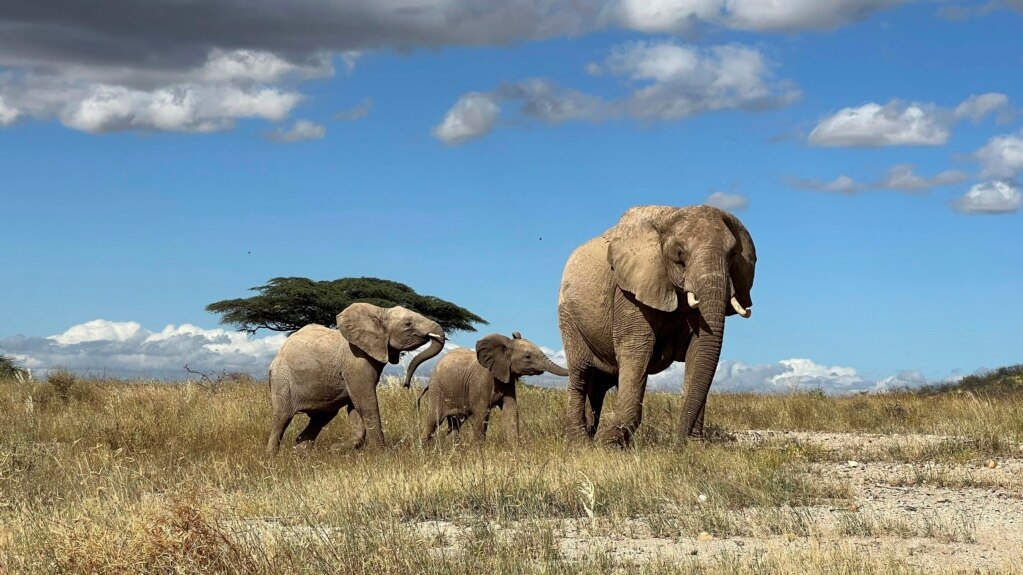African elephants call each other by and answer to individual names, a new study finds. Such communication is rare in the animal world.
African elephants are among the largest animals that live on land.
The names are one part of the low sounds, or rumbles, elephants make. They can hear these sounds over long distances where they live in the savannah – large grassy areas of land mixed with woodlands.
Scientists believe that animals with complex social structures may be more likely to use individual names.
Stuart Pimm of Duke University is an ecologist who was not involved with the study. He said, “If you’re looking after a large family, you’ve got to be able to say, ‘Hey, Virginia, get over here!’”
It is extremely rare for animals to call each other by individual names. Humans have names, of course, and dogs and cats may react when their names are called.
Some ocean animals, including the dolphin, invent their own names when they are very young. And the birds called parrots may also use names.
Each of these naming animals also have the ability to learn and say individual new sounds throughout their lives, as does the African elephant, the research shows.
The study was released in the publication Nature Ecology & Evolution. In the study, biologists used machine learning to find the use of names in recordings of savanna elephant sounds. The sounds were recorded at Kenya’s Samburu National Reserve and Amboseli National Park.
The researchers followed the elephants as they traveled to observe which one called out and which one appeared to answer.
By examining only the audio data, the computer model predicted which elephant was being called 28 percent of the time, likely due to the inclusion of its name. When fed meaningless data, the model only correctly predicted eight percent of calls.
Biologist Mickey Pardo of Cornell University wrote the study. He said, “Just like humans, elephants use names, but probably don’t use names in the majority” of their communications.
The low rumbles elephants make also may include sounds that are below the range of human hearing. The scientists still do not know which sounds make up a name.
Researchers tested their results by playing recordings to individual elephants. The elephants reacted more energetically, moving their ears and lifting their trunks, to recordings that contained their names. Sometimes elephants did not react in any way to the sounds of elephant names other than their own.
Ecologist George Wittemyer of Colorado State University helped write the study. He also is a scientific adviser for the nonprofit Save the Elephants, which aims to protect the animal.
He said, “Elephants are incredibly social, always talking and touching each other — this naming is probably one of the things that underpins their ability to communicate to individuals.”
Wittemyer added, “We just cracked open the door a bit to the elephant mind.”
I’m Gregory Stachel.

